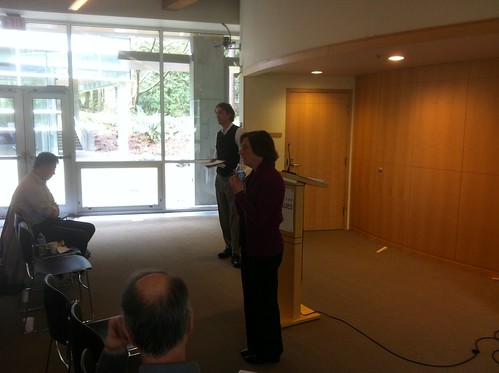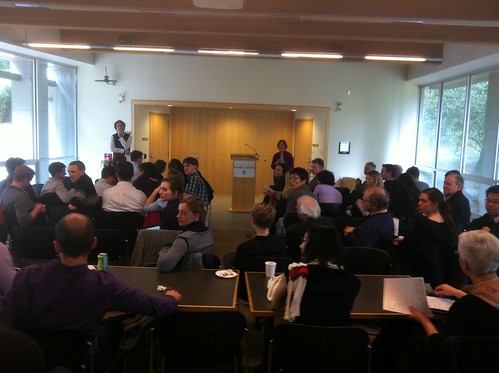Earlier this year, I presented at the Canadian Association of Latin American and Caribbean Studies (CALACS), the Canadian Association for Studies in International Development (CASID) and the Canadian Association of Geographers (CAG) conferences. At each of these, I presented preliminary research results (on my water and energy poverty project), some derivative work from previous projects (early work on multilevel water governance using river basins and on the global politics of sanitation) and an entirely new project I’m kickstarting (a cross-national comparative study on the socio-political dynamics of waste picking in Brazil, Argentina and Mexico).
When I was a graduate student, I always felt that I had to come to academic conferences to present pretty-much-completed work, or if it was work-in-progress, I always had to present empirical results. This was perhaps the way I was trained during my PhD. I have followed this policy through my scholarly career but in recent years, and now even more encouraged by a recent seminar presentation by Dr. Martha Finnemore (one of the world’s top constructivist scholars in international relations) at the Liu Institute for Global Issues at UBC, I have decided to use academic conferences and invited seminars to request feedback.
At her recent presentation (on “Constructing Statistics for Global Governance“), Dr. Finnemore specifically requested of her audience to help her think through her preliminary analysis and the way her research design was set up. What ensued was a lively discussion that I’m sure enabled Dr. Finnemore to gain insight into other ways of looking at the problem she was specifically looking at.
My experience using this method of requesting feedback on newly-launched projects has been nothing short of superb. At CALACS and CAG, I outlined the rationale for comparing waste pickers in Sao Paulo (Brazil), Buenos Aires (Argentina) and Mexico City (Mexico). I specified the research questions that drove my interest and provided some preliminary comparative data on solid waste production, number of waste pickers at the national and city-level. I also offered a preliminary theoretical and analytical framework that would guide my project.
Feedback I received was great, and I think that a number of scholars shun the opportunity to present very-early-stages research for fear of criticism. I also made a not-so-in-jest joke that I was paying for attending the conference (registration fees) so I was going to put my fellow scholars to work. And in a way, I kind of think so. I think that since we are (in some cases) paying exorbitant fees to attend conferences where we present our work, we might as well get as much from the conference as possible.
I have taken the same approach with departmental seminars. I don’t really favour this approach when giving an invited talk, as I believe that invited seminars are mostly an opportunity for the host university/department to learn about my completed or almost-finished research projects. But if the host university specifically asks me to discuss either my future research agenda or my newer scholarly stuff, then I make it explicit that I am in the early stages of a project.



2 Responses
Stay in touch with the conversation, subscribe to the RSS feed for comments on this post.
Continuing the Discussion